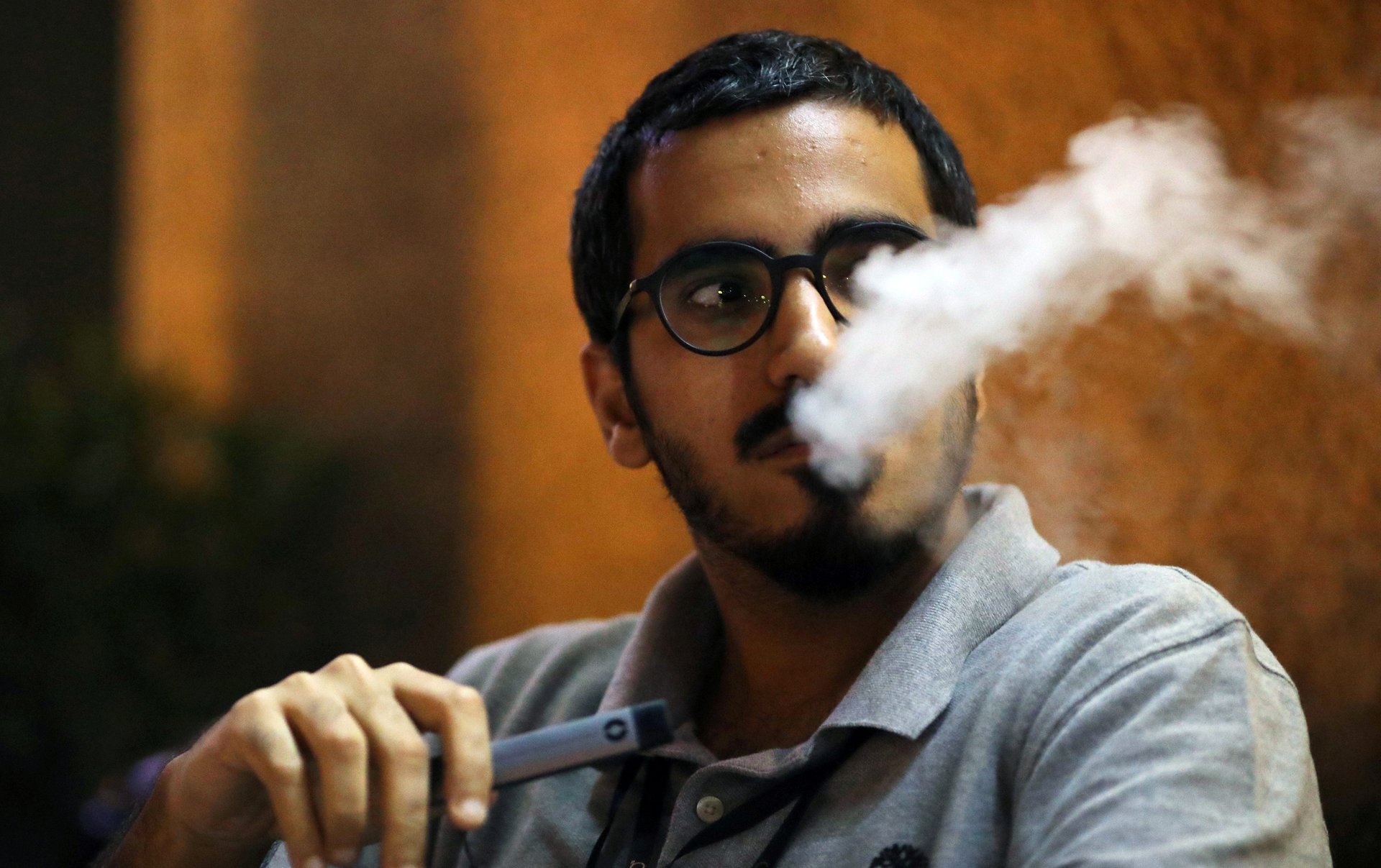India’s reason to ban vaping has little to do with its impact on health
Young people making a style statement with e-cigarettes, “to look cool,” has India concerned.


Young people making a style statement with e-cigarettes, “to look cool,” has India concerned.
An executive order banning the production, import, sale, storage and advertising of vaping products in the country was passed yesterday (Sept. 18), citing its rising popularity among the youth. First-time offenders could face up to one year in prison and a Rs1 lakh ($1,397) fine, subsequent violations will cost up to three years in jail and a Rs5 lakh fine.
The ordinance will be taken up for discussion in the next session of parliament on Dec. 2.
India’s vaping market is valued at around $15.6 million, and was expected to grow at 60% annually until 2022, according to the market research firm Euromonitor International.
“These novel products come with attractive appearances and multiple flavours; their use has increased exponentially and has acquired epidemic proportions in developed countries, especially among youth and children,” finance minister Nirmala Sitharaman said while announcing the decision at a media briefing. “It is believed that there are more than 400 brands (of e-cigarettes), none of which is manufactured yet in India. And they come in over 150 flavours.”
In July, the government had informed parliament that e-cigarettes worth $191,781 were imported to India, mostly from China, US, Hong Kong and Germany, between 2016-17 and 2018-19.
While it is often promoted as a safe alternative to tobacco, the impact of vaping on health is not yet fully understood.
Toxic tales
Recently, e-cigarettes attracted a global backlash after a spike in vapers contracting life-threatening lung diseases in the US. The US Centers for Disease Control and Prevention (CDC) is investigating 380 confirmed or probable cases of the vaping-related illness.
The ill-effects of vaping has prompted the Indian Council of Medical Research (ICMR), an apex body on biomedical research, to recommend a complete ban a few months ago.
On May 31, marking World No Tobacco Day, the research body released a white paper (pdf) on Electronic Nicotine Delivery Systems (ENDS), recommending “total prohibition of vape” after studying 250 research papers from across the world. The paper said that e-cigarettes contain highly-addictive nicotine solution and flavouring agents hazardous for health.
India’s move comes soon after Michael Bloomberg, the former mayor of New York, pledged that his foundation will spend $160 million fighting youth vaping. US president Donald Trump, too, has plans for a ban on flavoured e-cigarettes to protect, “innocent children.”
The opposition
Meanwhile, the Association of Vapers India (AVI), an organisation that represents e-cigarette users, said the ban is a black day for smokers who have been deprived of safer alternatives to cigarettes.
With 100 million smokers, India is home to 12% of all tobacco users in the world. Besides, 40% of adults in the country are exposed to passive smoking and India also has the dubious distinction of showing the lowest quitting rate as per India’s ministry of health and family welfare’s Global Adult Tobacco Survey 2 (pdf).
“The government owns 28% of ITC, a leading manufacturer of cigarettes, which means it is directly profiteering from the cigarette trade, along with earning thousands of crores in taxes on cigarettes,” said Samrat Chowdhery, founder, Association of Vapers India on Sept. 18 in response to the government’s move.
An outright ban would lead to the creation of a black market, defeating the purpose of the ban, he added. “The Association of Vapers welcomes regulation and taxes but a ban will kill conversation surrounding its health effects which are still unclear,” he said.
“From the start, the government has not been considerate about public health or public welfare, backing biased scientific evidence which has been rebutted by scientists for cherry-picking and misinterpreting research to target ENDS,” said Chowdhery.